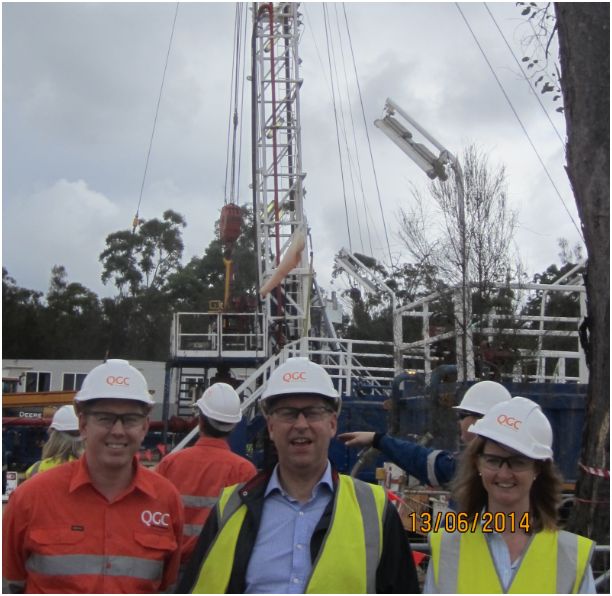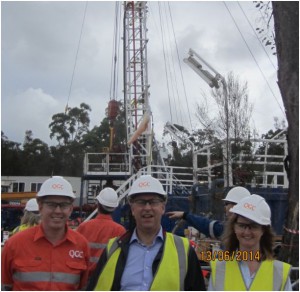20th June 2013
Australia: gas super power

Hard hat, heavy boots, pre-dawn start. That’s what a visit to an Australian resources site entails. I’m getting used to it. Australia is a gas superpower, on its way to overtaking Qatar as the world’s largest LNG exporter by the end of the decade. British companies are big players in developing the industry, offshore in Western Australia and onshore in the East.

Last week British Gas took me to see their Coal Seam Gas developments in the Surat Basin in Queensland. Since they acquired the Queensland Gas Company (QGC)in 2008 , this has become one of their most important assets worldwide. It will be the world’s first project to turn coal seam gas into LNG. The gas, methane, is found in water in coal deposits 300-600 metres below ground. It needs to be pumped to the surface, separated out from the water, compressed and sent along a 540km pipe network to the port at Curtis Island, where it will be liquefied and exported to Asian markets.
Unlike other resources developments I’ve visited, CSG gas is widely dispersed. The company are currently drilling 2,000 wells. Eventually they will have 6000 wells across an area of some 4500 square kilometers. We visited one new well head and saw the huge drilling rig. It’s a massive undertaking involving some $20 billion investment from 2010-14, creating some 5000 construction jobs and 1000 full time jobs. Most of the spending is inevitably local, but there have also been some very significant contracts for UK suppliers like Murphy Pipe and Civil. My UKTI team are involved in a big project to bring opportunities in Australian oil and gas to the attention of the UK supply chain. And we are running webinars with helpful advice about the resources sector.
In contrast to the remote iron ore mine I visited in WA, much of the Surat basin is good farmland. So QGC has negotiated rent payments to the local farmers to station wells and pipelines on their land: once construction has been completed, the infrastructure does not seem particularly intrusive. In Australia, the actual underground resources belong to the government, so there will be major benefits to the national exchequer too. QGC are also being very careful to implement the best environmental practices, particularly where the development will involve “fracking” the rocks, using water and chemicals to break up the coal seams allowing the gas to be released.
Once again it was a fascinating reminder of the size of Australia and the scale of its natural resources.